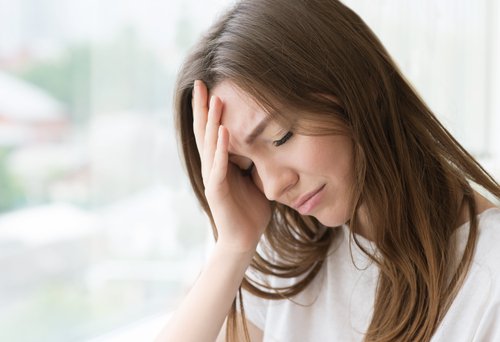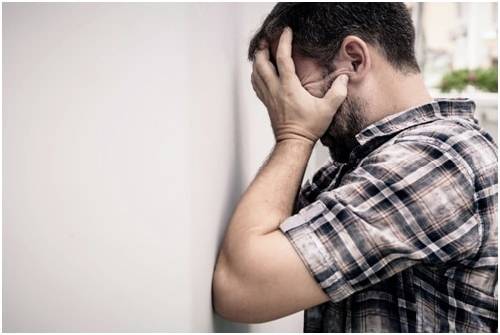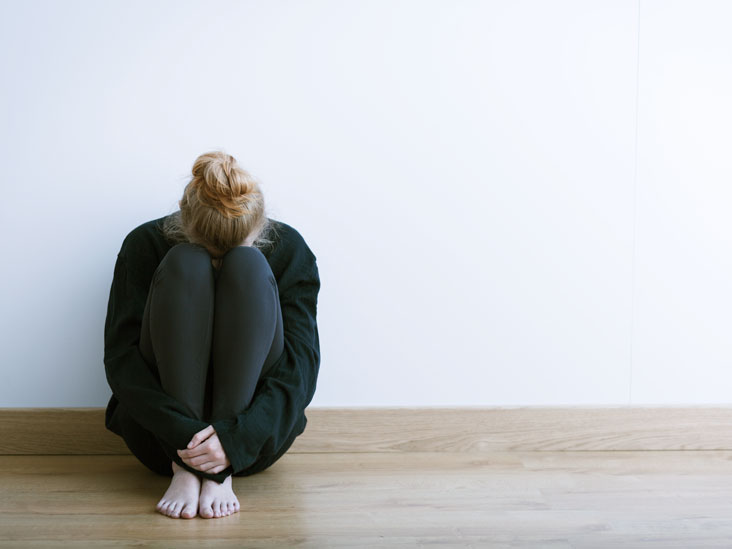Anxiety is a common mental health condition. It can affect people of all ages, backgrounds, and lifestyles. And while it can be difficult to deal with, there are ways to manage it. This guide on dealing with extreme anxiety is designed to provide you with the resources you need to get started. From tips for managing stress daily to advice for coping with an anxiety disorder, this guide has everything you need to get started.
Contents
What is Extreme Anxiety?

Extreme anxiety is a mental disorder in which people experience intense fear or anxiety that is out of proportion to the situation. There are many different types of anxiety, but extreme anxiety is often characterized by worry about everyday activities and feelings of terror. People with extreme anxiety may become completely paralyzed by fear, unable to leave their homes or speak in public.
People with extreme anxiety often have difficulty functioning in everyday life. They may avoid social situations, become withdrawn, and have trouble concentrating. They may also experience panic attacks and sudden outbursts of intense fear that can make breathing difficult and leave them feeling lightheaded or dizzy. Sometimes, people with extreme anxiety are not able to sleep or eat properly and may become irritable or depressed.
Symptoms of Extreme Anxiety

Symptoms of extreme anxiety can vary from person to person, but may include:
Nervousness or feeling on edge
One of the most common symptoms of anxiety is feeling nervous or on edge. This can be accompanied by a feeling that everything is going to be a disaster or a sense of constant fear that something terrible is going to happen.
Extremely high or low blood pressure
Another symptom of anxiety may be extremely high or low blood pressure. This can make it difficult to breathe and can lead to a feeling of dizziness or lightheadedness.
Change in appetite or thirst
Many people with anxiety experience a change in appetite or thirst. They may eat excessively or drink more than usual in an attempt to calm their nerves. Alternatively, they may lose interest in food or stop eating altogether.
Hard time concentrating
Anxiety can make it difficult to focus on anything. This can lead to problems with completing tasks or even thinking straight.
Muscle tension
Anxiety can also cause a person to feel tense all over their body. This may manifest as a feeling of being constantly on edge, a racing heart, or pins and needles.
Feeling like you’re being watched or paranoid
Another symptom of anxiety is feeling like you’re being watched or paranoid. This can be accompanied by a sense of fear or dread, as well as feelings of being out of control.
Strong urge to keep close tabs on your surroundings
When you have a strong urge to keep close tabs on your surroundings, this may be a sign of anxiety. This can manifest as needing to know where everyone is at all times or feeling the need to keep things in a certain order.
Avoidance of social situations
Many people with anxiety avoid social situations. This may be due to feeling like you’re being judged, feeling overwhelmed by crowds, or fearing that you will have a panic attack.
Changes in sleep patterns
Anxiety can also cause changes in sleep patterns. This may include difficulty falling asleep, waking up frequently during the night, or feeling exhausted during the day.
Rapid heart rate or shallow breathing
Rapid heart rate or shallow breathing are common symptoms of anxiety. This can make you feel like your chest is tightening, and may cause dizziness or lightheadedness.
Sweating or trembling
Sweating or trembling are other common symptoms of anxiety. This may be due to feeling overheated or feeling like your heart is racing.
What Causes Extreme Anxiety?

There is no single cause of extreme anxiety. It is thought to be caused by a combination of genetic and environmental factors. Some people may be more prone to anxiety due to their genes, while others may develop it in response to stressful life events.
Some of the most common triggers for extreme anxiety include:
- Family history of anxiety or other mental disorders
One of the main risk factors for extreme anxiety is having a family history of anxiety or other mental disorders. This suggests that there may be a genetic component to the condition.
- Trauma or abuse
Trauma or abuse is another common trigger for extreme anxiety. This can include things like being the victim of violence, witnessing a traumatic event, or experiencing sexual abuse.
- Stressful life events
Stressful life events, such as losing a job, going through a divorce, or moving to a new city can also trigger extreme anxiety.
How Is Extreme Anxiety Diagnosed?
If you are experiencing symptoms of extreme anxiety, it is important to see your doctor or mental health professional for an evaluation. They will ask you about your symptoms and medical history. They may also order tests, such as blood work or a psychological evaluation, to rule out other conditions.
Once other conditions have been ruled out, a diagnosis of extreme anxiety can be made based on the presence of certain symptoms. These symptoms must be present for at least six months and must cause significant distress or interfere with your daily life to be diagnosed.
How Can Extreme Anxiety Impact You?
Extreme anxiety can impact any part of your life, from your work performance to your relationships. Here are four ways that extreme anxiety can affect you:
1) Extreme Anxiety Can Cause Panic Attacks: When severe levels of anxiety become chronic, they can trigger panic attacks. A panic attack is a sudden burst of intense fear or worry that causes symptoms such as heart palpitations, shortness of breath, and irrational thoughts.
2) Extreme Anxiety Can Cause You To Lose Focus: With so much focus on the fear or worry overwhelming you, it becomes hard to think straight or stay on task. You might find yourself making careless decisions because you’re too anxious to weigh the pros and cons carefully.
3) Extreme Anxiety Can Make You Feel Too Scared To Leave Your Home: Living with the constant fear of abandonment can be unbearable for some people. It can make them reluctant to leave their homes even if they need to go out for essential items like groceries or medication.
4) Extreme Anxiety Can Lead To Depression And Anxiety Disorders: People with extreme anxiety often have other mental health disorders, such as depression or social anxiety disorder. This is because anxiety can cause a person to withdraw from their usual activities and hobbies, which leads to feelings of isolation and loneliness.
If you’re struggling with extreme anxiety, it’s important to seek professional help. A therapist can provide you with tools and resources to manage your anxiety healthily. With treatment, you can learn how to control your anxiety so that it doesn’t control you.
What Can You Do if You’re Experiencing Extreme Anxiety?

If you’re experiencing extreme anxiety, there are many things that you can do to help improve your situation. Here are some tips:
1. Get organized. When you’re feeling out of control, it’s easy to feel like everything is spinning out of your control. One way to combat this is to try and get your life organized in a way that makes sense to you. Putting all of your papers in one place, setting simple daily and weekly goals, and having a plan for how you’ll accomplish them can help you stay on track and feel less overwhelmed.
2. Talk to someone about your anxiety. Talking about what’s going on with you can help manage anxiety symptoms. Talking openly with someone who knows and understands what you’re going through can help take some of the pressure off of yourself. There are also many resources available online or in libraries that can provide support for dealing with anxiety.
3. Exercise regularly. Staying active and moving helps reduce stress levels overall, but it has particularly positive effects on people with anxiety disorders. Exercising releases endorphins, which have antidepressant effects, help regulate moods, and burn calories which can lead to weight loss if done correctly.
4. Try relaxation exercises or meditation techniques. These types of strategies can help ease the tension that builds up inside when worries keep coming back around constantly without being addressed or resolved appropriately. Some basic relaxation exercises include deep breathing exercises or visualization exercises. You can also try out different types of meditation, such as mindfulness meditation or transcendental meditation.
5. Seek professional help if necessary. If your anxiety is significantly impacting your day-to-day life and you’re finding it difficult to cope on your own, consider seeking professional help from a therapist or counselor. He or she can provide you with tools and strategies specifically tailored to your needs that can help you get your anxiety under control.
6 Try medication if necessary. In some cases, people with anxiety disorders may need to take medication to manage their symptoms effectively. If you think this might be the case for you, speak with your doctor about your options and what they think would be best for you.
Conclusion
If you or someone you know suffers from extreme anxiety, this guide is for you. In it, we will discuss what extreme anxiety is, the different types of anxiety and how to deal with them. We have provided a few resources and tips on how to cope with extreme anxiety if you find yourself struggling to manage it on your own. Finally, we will leave you with some advice on self-care that can help keep you healthy and supported throughout your journey.
Hope this article was of help to you! If you are suffering from mental health disorders, you may seek help from Therapy Mantra. We have a team of highly trained and experienced therapists who can provide you with the tools and skills necessary for overcoming mental health disorders. Contact us today to schedule an online therapy or download our free Android or iOS app for more information.


